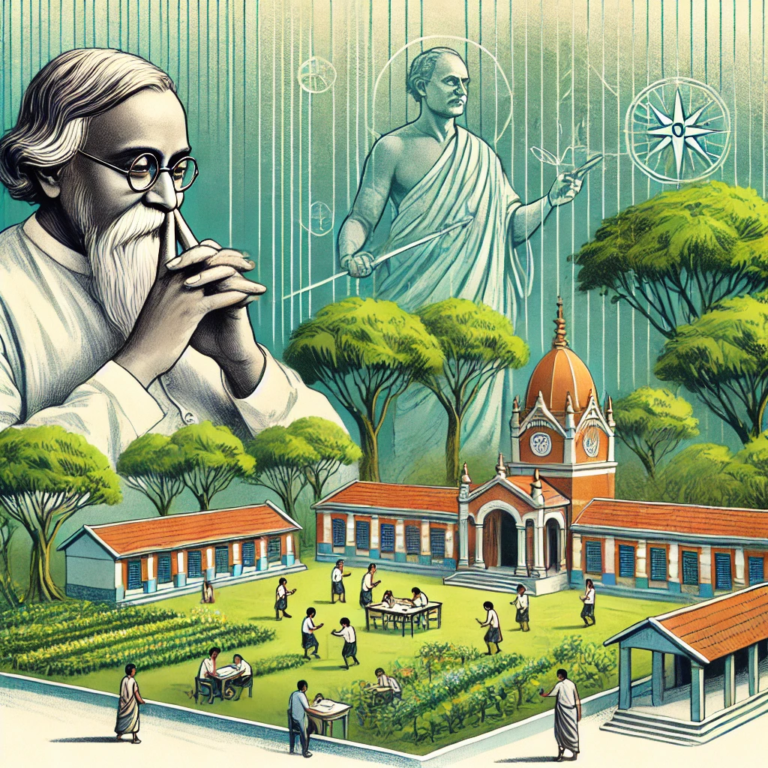In the early 20th century, Rabindranath Tagore took charge of managing his family’s zamindari (estate) and came to Patisar, located in present-day Naogaon district (then part of Bengal). Life here was far removed from the luxury of Jorasanko, his ancestral home in Kolkata — instead, it was marked by hardship and struggle. In Patisar, Rabindranath witnessed firsthand the daily suffering of farmers. Exploited by greedy moneylenders charging exorbitant interest rates, the peasants were being driven into poverty. These experiences left a deep impact on him and inspired him to find ways to improve their quality of life.
At that time, modern banking systems in India were still in their infancy. Initially, Rabindranath could not find a solution to the farmers’ financial woes. Eventually, he realized that a banking system could be a powerful tool to support farmers. In response, he established India’s first agricultural bank in 1905 at Kaligram in Patisar. This bank provided low-interest loans to farmers, helping them become financially stable. Though the farmers were initially skeptical, over time, they began to trust and benefit from the system.
Meanwhile, 1905 was also the year of the Bengal Partition, which triggered widespread unrest across Bengal. In Kolkata, the Swadeshi movement gained momentum. While the urban elites joined protests, Rabindranath came to the banks of the Padma River and stood beside the farmers. His efforts went beyond the bank — he also established a high school and a charitable dispensary in the area. Although raising funds for the agricultural bank was difficult at first, he did not give up. Later, when he received the Nobel Prize, he used the prize money to fund these initiatives.
In 1913, after being awarded the Nobel Prize, Rabindranath invested ₹1,08,000 of the prize money in the Patisar Agricultural Bank to support the farmers. He used the rest of the prize money to help establish Visva-Bharati University. Unfortunately, the agricultural bank could not sustain itself and eventually went bankrupt. Rabindranath never recovered his investment, but he did his best to return the money to other depositors as much as possible.
Though born into an aristocratic zamindar family, Rabindranath chose not to live a life of luxury. Instead, he chose to walk alongside the poor and share in their struggles. To raise funds for Visva-Bharati, he even toured the country and traveled abroad with a troupe performing plays. Many of his initiatives may not have succeeded in the conventional sense, but his alternative vision for India’s economy remains deeply relevant and important even today.

